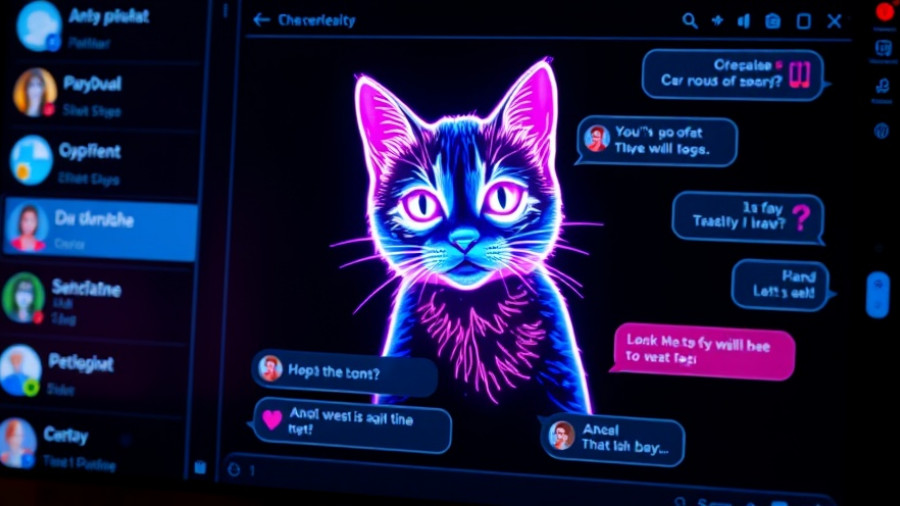
Meta's Shift: The End of Messenger on Desktop
Meta's recent announcement regarding the discontinuation of its Messenger app for Windows and Mac may feel minor but signals a significant shift in user engagement strategies. As the company prepares to retire these apps by December 15, 2025, users are encouraged to redirect their messaging efforts to the Facebook website. This change is part of a broader effort to streamline functionality across its platforms, particularly as the popularity of dedicated desktop messaging apps has ebbed alongside increasing mobile usage.
Why is Messenger Phasing Out Its Desktop Version?
The initial launch of Messenger's desktop version came at a time when video calls surged due to the pandemic. However, shifting user preferences back to mobile applications led Meta to reassess the viability of maintaining standalone desktop apps. A spokesperson noted, “We want to focus our resources on experiences where we can engage users most effectively.” This adaptation towards a web-centric model echoes industry trends where web versions of apps become more popular as users demand more flexible online access without the need for specific applications.
The Impact on Users and Best Practices Moving Forward
For business owners and marketing professionals accustomed to leveraging the desktop app for messaging, this transition might stir concerns about continuity. However, Meta assures that messages and chat histories can still be accessed through logging into Facebook directly on the web platform. Users should activate secure storage features to ensure their data remains intact. The simple steps include navigating to Privacy & Safety settings, enabling secure storage, and setting a PIN, which guarantees that chat histories are preserved even post-deprecation.
Charting the Future of Business Communication
This transition toward web-based messaging tools aligns with the evolving digital landscape. For businesses, it’s imperative to adapt to these changes by integrating more versatile communication strategies that encompass mobile and web interactions. As Meta nudges users towards web-based chat, companies should consider diversifying their communication methods to include more multi-channel approaches, ensuring that they can meet consumer preferences head-on amidst these ongoing shifts.
Conclusion: Embracing Change in Digital Communication
Despite the withdrawal of dedicated desktop Messenger apps, the fundamental functionalities will remain accessible through Facebook's website. This adjustment might require some reorientation, but it is largely about enhancing user experiences as social media continues to evolve. Businesses and marketing professionals must stay agile, ensuring they leverage these platforms efficiently to maintain their engagement and connection with clients. As we navigate these changes, proactive adaptation will hold the key to successful digital communication in the future.
 Add Row
Add Row  Add
Add 




Write A Comment